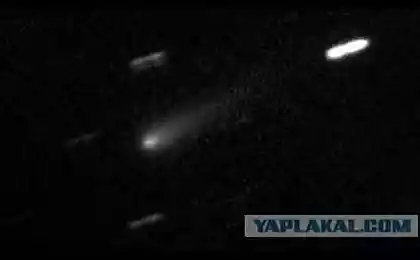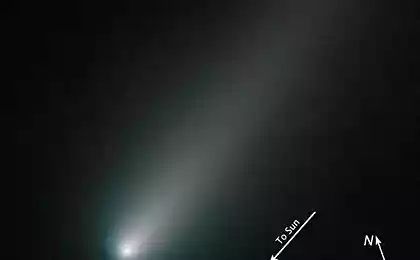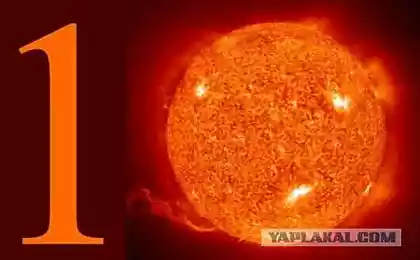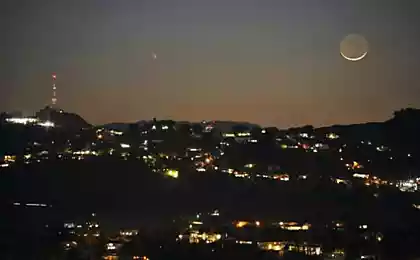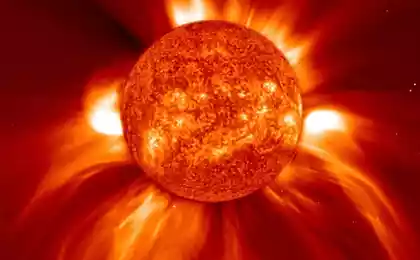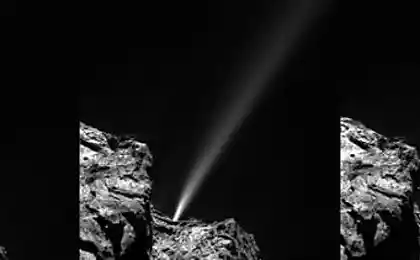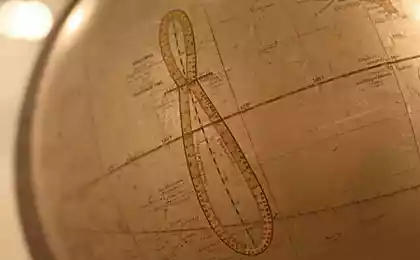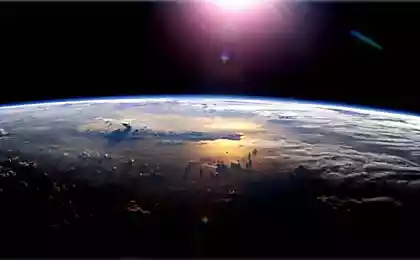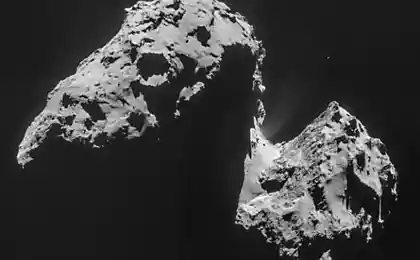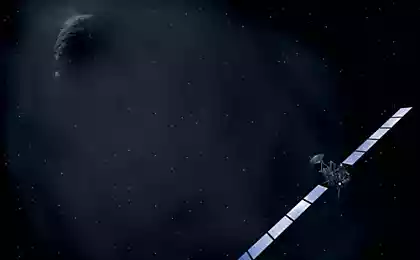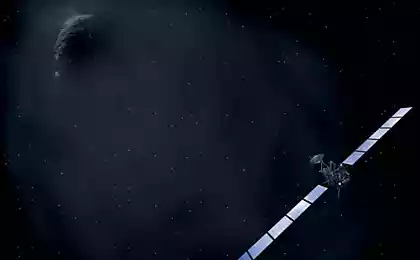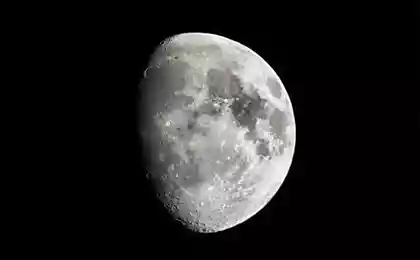441
Mysterious comet survived meeting the Sun
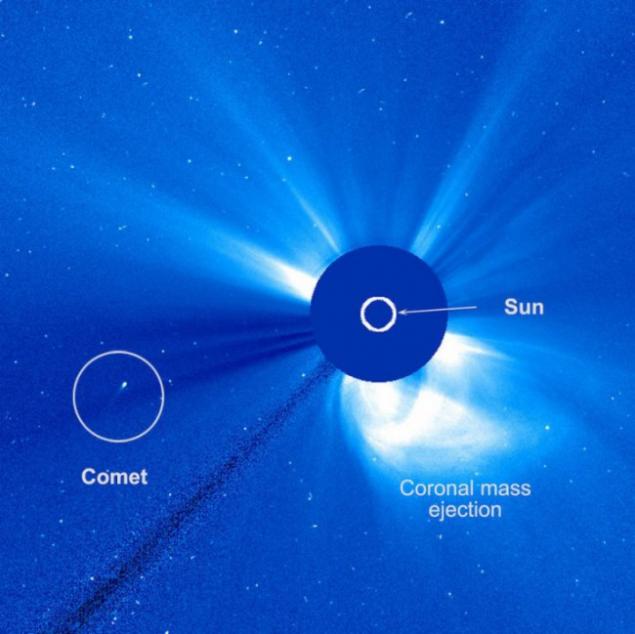
Observatory SOHO to observe the Sun photographed unusual comet, the survivors after flying at a dangerously close distance from the star. "The meeting" C/2015 D1 with the sun was recorded between the 18th to the 21st of this month. The uniqueness of this comet is that it does not belong to any known family of comets.
Most comets that have been photographed with the spacecraft Solar and Heliospheric Observatory (SOHO), belong to the family of comets of the solar Kratsa, which are believed to be parts of one giant comet that was destroyed many centuries ago. According to this theory, most of the "sungrazer" moving along trajectories near the Sun's surface, are fragments of a shattered comet with a diameter of 20 to 100 kilometers. During its rotation around the Sun in about 800 years a large comet and its parts were destroyed more than once.
According to some estimates, the solar comets do not exceed ten metres in diameter. For comparison, the diameter of the Sun is 1 390 000 km.
Scientists were also surprised by the fact that C/2015 D1 is passed from the surface of the Sun at a distance of about 3.5 kilometers. Most comets are vaporized by intense sunlight, because they are made of ice and dirt. The researchers also noted an unusual brightness C/2015 D1.
There is a big chance that in the coming weeks, the comet will be visible from Earth. But it is also possible that events on the Sun will quickly lead to its demise, said scientists from the naval research laboratory in Washington.
The device is SOHO was launched in 1995. During his work he discovered a large number of comets. The latest find is listed in its General list of discoveries under the number 2875.
Circumsolar comets-singles meet several times a year. However, until now none of the devices for observing the Sun due to the lack of sensitivity of onboard instruments was not able to capture the comet in such close proximity from the Sun.
In 2012, with a telescope SDO (Solar Dynamics Observatory), SOHO, and STEREO (Solar Terrestrial Relations Observatory), scientists were able to trace the flight of the comet C/2011 N3 family of Kratze to its destruction at a distance of 100,000 kilometers from the surface of the Sun.
And the recent landing of the Philae probe on comet 67P/Churyumov — Gerasimenko for the first time allowed to study the comet as close to her distance. Analysis of water samples from comet 67P/Churyumov — Gerasimenko showed that its chemical composition is different from earth. This refutes the assumption of some scientists that the water was brought to Earth from space. published
Source: hi-news.ru
5 inventions that existed long before their popularization
Lean dessert: Oatmeal pudding on a decoction of rose hips
